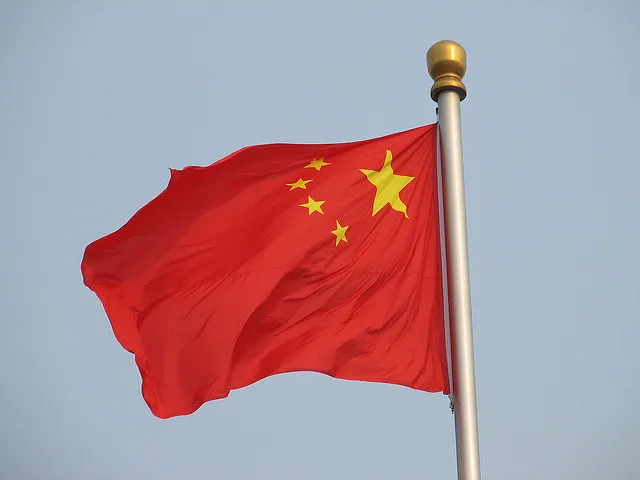
China growth target wavers to 7.5%
The country lowered its 2012 growth forecast to below 8%, the first time it has done so in eight years.
More than an actual precursor for China's growth numbers, the forecast is more of a bellwether of economic policy direction, which OCBC thinks is moving towards "quality oriented growth."
Inflation will also take a back seat for the more urgent priority of stabilizing the economy as China undergoes a regime change this year. Reforms were also promised by Chinese Premier Wen Jiabao aimed at closing the income gap and assisting small businesses.
Here's more from OCBC:
Chinese growth target is usually not a good forecast reference as previous experiences showed that actual figures always deviated from the growth targets significantly. Nevertheless, the 0.5% cut in growth target this year is more symbolic and signals the change of government mentality from the quantity oriented growth to the quality oriented growth. We maintain our GDP forecast for this year at 8.5%.
Interesting to note, China retains its inflation target unchanged although CPI is expected to slow to about 3%-3.3% this year based on market consensus (OCBC: 3.0%). The higher than expected inflation target could be interpreted from two sides including 1) China may raise its tolerance for higher inflation, which leaves room for pricing mechanism reform on resource and electricity prices etc. 2) China is still worried about elevated imported inflation and rising domestic cost pressures given rising global commodity prices and domestic wages.
Although China lowered its growth target while maintaining inflation target unchanged, keeping economic stability will be the top priority this year ahead of the expected leadership change, outweighing last year’s top policy priority of fighting inflation. As such, China will roll over its supporting measures such as proactive fiscal policies and prudent monetary policy with more flexibility.
Premier Wen committed to speed up the government reform with focus on strengthening human rights and voting rights. Meanwhile he also signaled that China is moving towards a society ruled by laws rather than ruled by rulers. Politics and economics always go hand in hand in China. Without a simultaneous political reform, economic and financial reform in China is unlikely to be smooth.
Although Chinese economy saw on average double digit growth for the past thirty years, ordinary Chinese felt they are being left behind with the widening income gap. In today’s speech, we do see a few measures from Premier Wen to address this concern including gradually lifting minimum wages nationwide, imposing higher tax on high incomers and cap the income for senior management from the state owned companies.
Chinese small businesses are usually the most vulnerable group in Chinese economy, with difficulty in accessing funding regardless of a loose or tight monetary environment. Under a loose monetary environment, banks tend to lend to big companies to enjoy a safe and fat interest margin, crowding the small businesses out of funding market. Under a tight monetary condition, small business could even be crowded out of the private money lending market as the black market interest rate was pushed up by property developers. Therefore, supporting small business funding is likely to be the key focus for the next five years. Financial reform will be the key to meet funding needs from the small businesses. As such, China will lower the barriers for private capital or foreign capital to enter the financial sector to set up small finance companies.



![SBR 5 Lorem Ipsum News 2 [8 May]](https://cmg-qa.s3.ap-southeast-1.amazonaws.com/s3fs-public/styles/exclusive_featured_article/public/2025-05/a_hand_pointing_to_a_futuristic_technology_5b87c9d0e3_3.png.webp?itok=M3Hf-9XR)
![SBR 4 Lorem Ipsum [8 May Top Stories]](https://cmg-qa.s3.ap-southeast-1.amazonaws.com/s3fs-public/styles/exclusive_featured_article/public/2025-05/a_hand_pointing_to_a_futuristic_technology_5b87c9d0e3_2.png.webp?itok=2m5Wl0MX)


![Exclusive three SBR 12 Lorem Ipsum [8 May]](https://cmg-qa.s3.ap-southeast-1.amazonaws.com/s3fs-public/styles/exclusive_featured_article/public/2025-05/a_hand_pointing_to_a_futuristic_technology_5b87c9d0e3_11.png.webp?itok=8kn_UIfA)
![SBR 3 Lorem Ipsum [ Exclusive 2]](https://cmg-qa.s3.ap-southeast-1.amazonaws.com/s3fs-public/styles/exclusive_featured_article/public/2025-05/a_hand_pointing_to_a_futuristic_technology_5b87c9d0e3_1.png.webp?itok=YCyjLegJ)
![SBR 2 Lorem Ipsum [8 May]](https://cmg-qa.s3.ap-southeast-1.amazonaws.com/s3fs-public/styles/exclusive_featured_article/public/2025-05/a_hand_pointing_to_a_futuristic_technology_5b87c9d0e3_0.png.webp?itok=_cKD-29o)

![Video [Event News]](https://cmg-qa.s3.ap-southeast-1.amazonaws.com/s3fs-public/styles/event_news_featured_article/public/2025-05/screenshot-2025-05-08-at-4.58.53-pm_0.png.webp?itok=Kud35sMs)
![Event News SBR 9 Lorem Ipsum [8 may]](https://cmg-qa.s3.ap-southeast-1.amazonaws.com/s3fs-public/styles/event_news_thumbnail/public/2025-05/a_hand_pointing_to_a_futuristic_technology_5b87c9d0e3_8.png.webp?itok=DTh_dbYp)
![Event News SBR 9 Lorem Ipsum [8 May]](https://cmg-qa.s3.ap-southeast-1.amazonaws.com/s3fs-public/styles/event_news_thumbnail/public/2025-05/a_hand_pointing_to_a_futuristic_technology_5b87c9d0e3_7.png.webp?itok=vzDAzb6V)
![Event News SBR 8 Lorem Ipsum [8 May]](https://cmg-qa.s3.ap-southeast-1.amazonaws.com/s3fs-public/styles/event_news_thumbnail/public/2025-05/a_hand_pointing_to_a_futuristic_technology_5b87c9d0e3_6.png.webp?itok=jvHFc4P6)
![Video [Event News]](https://cmg-qa.s3.ap-southeast-1.amazonaws.com/s3fs-public/styles/video_thumbnail/public/2025-05/screenshot-2025-05-08-at-4.58.53-pm_0.png.webp?itok=yZnI0YBb)
![Video 1 SBR [8 May]](https://cmg-qa.s3.ap-southeast-1.amazonaws.com/s3fs-public/styles/video_thumbnail/public/2025-05/screenshot-2025-05-08-at-4.58.53-pm.png.webp?itok=9AAeRz_k)

 Advertise
Advertise

